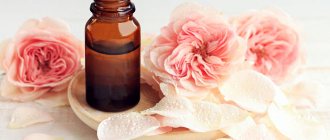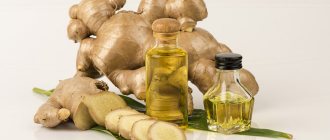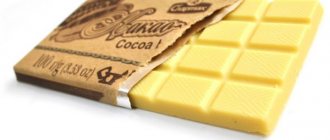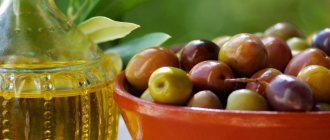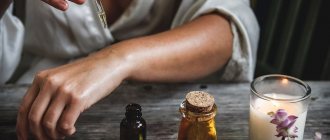www.bigstockphoto.com
An aromatic seasoning made from dried tree bark, cinnamon is a well-known spice that is often used in cooking. However, not everyone has heard that the bark and leaves of the cinnamon tree contain valuable oil, which has beneficial and healing properties and is used in cosmetology and aromatherapy.
Methods of obtaining
There are two types of cinnamon oil: that which is extracted from the bark of the tree, and the oil from the leaves and shoots. The bark removed from the dried branches is crushed, soaked, and then the infusion is quickly distilled. The resulting liquid has a brown tint, a characteristic spicy odor and a burning taste. The essential oil, which is extracted from the leaves of the tree, is slightly different in composition and has a light yellow tint. While bark oil is more potent, cinnamon leaf oil is better suited for aromatherapy. One way or another, cinnamon oil is healthy in any of its forms.
Cinnamon oil: production, composition, benefits
Cinnamon essential oil comes in two types: from tree bark or leaves and shoots. In both the first and second cases, the phytoessence is obtained through water or steam distillation. The result is a sweet, spicy aroma oil. The color of the ether depends on the raw material. The oil from the bark is yellow-golden, and from the leaves it is yellow or brown. In addition to color, these oils differ in chemical composition. The ether obtained from the leaves and shoots of Ceylon cinnamon contains a large amount of eugenol. Due to this, its irritating effect is several times lower than oils from the bark, so it is recommended to use it in the treatment of diseases, aromatherapy and cosmetic purposes. It also contains cinnamaldehyde, choline, vitamins, tannids, and minerals. Now it’s worth telling what purposes cinnamon essential oil is suitable for.
- Thanks to its antispasmodic effect, cinnamon oil is successfully used for diseases of the gastrointestinal tract. It will help with colitis, poor digestion, nausea, stomach and intestinal cramps, and diarrhea. Ether is also able to cope with increased gas formation - flatulence.
- Cinnamon phytoessence can relieve pain, as it is a natural analgesic, and inflammation. For this reason, it is often used in massage mixtures to relieve joint and muscle pain. In addition, cinnamon oil relieves neuralgic pain and pain caused by menstruation.
- Cinnamon essential oil has a positive effect on metabolic processes, that is, it increases the rate of cellular metabolism, accelerates blood flow and improves the supply of blood to organs, including the pelvic organs.
- Cinnamon essence has a detrimental effect on the vital activity of microorganisms - bacteria and viruses. It will help you cope with flu and colds easier, plus it will increase the body's protective functions. In other words, it will strengthen the immune system, which will further help you stay healthy even during the cold season.
- The antioxidant property of cinnamon essential oil helps the body fight free radicals. Their harm lies in the fact that they destroy the membranes of healthy cells, and this, in turn, causes premature aging.
- Cinnamon aroma oil is considered an aphrodisiac, that is, a means of stimulating sexual activity.
- Women often use cinnamon oil in case of menstrual irregularities. It is also used during childbirth to stimulate labor contractions.
- The room is aromatized using cinnamon ether. This is done to prevent colds, to combat asthenic and depressive conditions and to increase stress resistance.
- Ceylon cinnamon essential oil neutralizes poisons, so it is used for snake and insect bites.
- Cinnamon essence has proven itself to be excellent in the treatment of dermatological ailments. It copes well with fungal infections and scabies, eliminates papillomas and warts. In addition, it is actively used for rejuvenation, nutrition, and toning of the facial skin. It is also worth noting that this product is effective in treating cellulite in the initial stage.
- For hair, aromatic cinnamon oil is used to stop excessive hair loss. The benefit of this ester for hair is also that it accelerates blood flow, thus improving the nutrition of hair follicles. As a result, the growth rate of hair shafts increases. Plus, cinnamon oil awakens “dormant” follicles, that is, under its influence, curls become thicker.
Basic properties
Essential oil is distinguished by the fact that it has an antimicrobial effect and is an antiseptic. Its aroma will help relieve colds. The oil has a warming effect and improves blood circulation. The smell of cinnamon oil relieves tension and at the same time has a tonic effect, helps improve mood, and get out of depression.
Benefits for the face
Cinnamon essential oil is suitable for all skin except sensitive skin. Due to a strong allergic reaction, many cosmetologists do not recommend using this product in masks. Before the procedure, a skin sensitivity test is performed. If after 30 minutes an allergic reaction does not occur, then it is allowed to use the mask product.
The following masks with cinnamon essential oil for the face are known:
- Product for oily skin. Beat the egg white with 1 teaspoon of lemon juice. Mix with 2 drops of cinnamon oil. Leave for 20 minutes. After the procedure, the facial skin will tighten and lose its oily sheen.
- Mask for problem skin. Mix 3 drops of cinnamon oil mixture with tbsp. spoon of blue clay. Pour the mixture into a tbsp. spoon of hydrogen peroxide. Apply to facial skin and leave for 20 minutes. If any discomfort occurs, wash off the mask immediately. Do it once every 7 days.
- Mask for dull skin. 2-3 drops of cinnamon oil and 1 tbsp. spoon of wheat germ oil mixture. Melt 5 g beeswax and 5 g cocoa butter. Add oil and mix thoroughly. When the mixture has cooled, it can be applied to the skin of the face.
- A mask that removes traces of acne. Mix 1 teaspoon of honey with 2 drops of cinnamon oil. Apply the mixture to problem areas. After half an hour, rinse with water.
- Mask with yogurt. Mix honey with cinnamon oil in a ratio of 2:1. Mix thoroughly and add 3 tbsp to the mixture. spoons of yogurt and a spoon of sour cream. The product can be used for normal skin types. If the skin is dry, then honey and oil are mixed with the addition of egg yolk.
Cinnamon essential oil, as a component of various masks, will provide effective assistance to the skin of the face.
Cosmetic ice will help your skin. As a result, its tone and color increase. Carry out the procedure daily, wiping your face. For a glass of water, take 2 drops of cinnamon oil and 1 teaspoon of sour cream.
Initially, upon contact with the skin, a burning sensation may occur. This is a completely normal condition that lasts 3-5 minutes.
Healing effect
Essential oil is included in cold medicines. Also, during treatment, it can be added to an inhalation mixture that contains eucalyptus or mint essential oil.
Also, cinnamon oil can help in the treatment of diseases such as lice.
A mixture of olive oil and cinnamon will help quickly heal bruises and treat abrasions. 15 ml of olive oil is combined with three drops of cinnamon oil. The injured area of skin should be rubbed for 5 minutes 2-3 times a day. The same remedy is used for rubbing against rheumatism, which helps alleviate the condition. After insect bites, you can treat the affected area with this composition - cinnamon oil contains an antidote that will help get rid of burning and swelling. For wasp or snake bites, you can apply cinnamon oil in pure form or in a 1:1 mixture with base oil, but always dotted with a cotton swab. The product will help neutralize the effect of the poison.
If your gums are bleeding, you should rinse your mouth with water and 2 drops of cinnamon oil after brushing your teeth.
Rubbing with cinnamon oil helps warm up muscles, prepare them for the stress of sports and prevent damage.
Some studies conducted in China suggest that this essential oil can fight cancer cells, namely throat tumors. However, these studies have so far been carried out only using test tubes. Continued scientific work is necessary to confirm their results.
Useful properties of cinnamon oil in cosmetology
The chemical composition and beneficial properties of cinnamon essential oil have made it indispensable in the care of oily skin prone to inflammation and rashes.
In addition, the oil is successfully used to combat the first signs of aging - wrinkles, loss of elasticity, dull complexion. It is also useful for getting rid of age spots or freckles: it will lighten, even out, invigorate, rejuvenate, and cleanse the sebaceous glands.
Cinnamon powder is often used in hair care, but oil is not left out. Its active (even slightly aggressive) components awaken “lazy” follicles, accelerate growth and improve the condition of strands. In addition, after a mask or washing with cinnamon oil, hair retains an alluring subtle aroma for some time.
The oil in foot masks softens rough areas of the feet and makes it easier to combat corns.
Added to body mixtures, it resists cellulite, helps keep skin tight and triggers fat burning processes. By themselves, wraps with oil will not help you lose weight, but in combination with other measures they will make things much easier.
Finally, the oil helps control hunger. Inhaling its vapors, despite the clear connection with delicious homemade baked goods, contributes to rapid satiety.
Effect on mood and emotions
The aroma of essential oil is designed to relieve stress, tension and stiffness. It creates an atmosphere of home comfort and eliminates the feeling of loneliness. In addition, the smell of cinnamon oil can lift your spirits and lift you out of depression.
Contraindications
Cinnamon essential oil has not only positive reviews, but also has contraindications. It is classified as an allergen. Experts do not recommend taking the oil orally for the following pathologies:
- Hypertension, nervous exhaustion. Oil can increase blood pressure.
- Pregnancy. When using the product, a miscarriage may occur due to contraction of the uterus.
- Sensitive skin. The result may be itching, irritation and swelling.
- Epilepsy and insomnia. Cinnamon is a stimulant, which can aggravate the disease.
The use of cinnamon essential oil externally may cause the following contraindications:
- Before using it, you need to do an allergy test. Apply the composition to the elbow. If redness or a burning sensation appears on the skin, it is not recommended to use cinnamon.
- Blonde hair may get a red tint due to the use of such a mask.
An overdose of cinnamon essential oil can lead to severe emotional overstimulation.
Application in cosmetology
Cinnamon oil is added to creams and body oils. It warms the skin and improves blood circulation. It is thanks to these properties that it is used to make anti-cellulite scrubs, and cinnamon oil is also considered an effective remedy for accelerating hair growth.
Before applying cinnamon oil to your skin, it is important to do an allergy test. To do this, mix a drop of essential oil with 1 tbsp. l. basic (for example, olive). You need to apply a little of this mixture to the inside of your elbow. If redness and other reactions do not appear on the skin in the next 8 hours, then the oil can be safely used.
Please note: cinnamon oil is almost never used in its pure form, but mixed with other oils or added to creams and other finished cosmetics in small quantities.
Even if there is no allergic reaction during the test, a burning sensation may occur when applying the oil. Cinnamon oil is strong on the skin, so it is important to take a safe dosage.
Cinnamon essential oil is used as an anti-cellulite remedy. Add 1 drop to 1 tbsp. l. base oil or the same amount of body oil, and then apply to problem areas. While the mixture is absorbed, you can massage.
Using this essential oil, you can prepare your own lip plumper. For 1 drop of cinnamon, take 5-10 drops of base (for example, almond) oil, then apply the mixture to the lips for 20 minutes. Due to the irritating effect of the product, the lips visually become more voluminous. Of course, the effect of such a mask is short-lived - only a couple of hours. It is not recommended to use the mixture on lips if they have cracks or wounds.
Thanks to its warming effect, cinnamon oil helps accelerate hair growth. To achieve this effect, add 1-2 drops to the shampoo (but not to the whole bottle, but to a single “portion”). Care should be taken not to get the product on the skin of the face - this can cause severe burning and redness. You should not use this hair oil too often - 1-2 times a week will be enough.
Uses of cinnamon essential oil
Treatment with cinnamon oil is possible in various ways, using it externally, internally, by inhalation, as part of massage oil, and even through aromatherapy. Cinnamon essential oil also combines well with other types of essential oils, in particular with spruce, peppermint and orange in 1 to 1 proportions.
Undiluted cinnamon oil is used only for applying to insect bites; in other cases, it is usually combined with something, for example, vegetable oil (15 ml of base oil per 3 drops of cinnamon) for rubbing for rheumatism, to get rid of skin parasites and for treating bruises and abrasions.
A mixture of a carrier oil (one tablespoon), 1 drop of cinnamon, orange and eucalyptus oils will help relieve muscle pain, have a warming effect and stimulate blood circulation.
If your gums are bleeding, add 2 drops of oil to a glass of boiled water and rinse your mouth several times a day.
Hot inhalations are also performed with cinnamon essential oil. To do this, take a container with hot water and 5 drops of oils, tilt your head over it, cover yourself with a large towel and inhale the vapors deeply for 3-7 minutes. At the same time, during the procedure, the eyes must be closed so as not to damage the mucous membrane in any way. Hot inhalations are especially effective for colds, general malaise and loss of strength.
For internal use, cinnamon oil (1-2 drops) is added to a teaspoon of honey, jam or jam. It is recommended to drink it with herbal tea. As an option to relieve the first signs of a cold, you can prepare a medicinal mixture based on dry red wine. To do this, you need to heat 1/2 cups of wine, dilute 1 tablespoon of honey, 3 drops of essential oils of cinnamon, cloves and cypress. Mix everything thoroughly and drink.
Additionally, cinnamon oil:
- One of the strongest antiseptics. Used to treat influenza, acute respiratory viral infections, colds, coughs. Stops hemoptysis.
- Stimulates the functions of the respiratory system.
- Improves the functioning of the digestive system, increases the secretion of gastric juice, salivation, prevents food poisoning and bloating. Prescribed for stomach atony, intestinal parasites, fermentation processes in the intestines, constipation, intestinal colic, dyspepsia, nausea, vomiting.
- Stimulates appetite.
- Accelerates blood circulation in the body and has a hemostatic effect.
- Improves heart activity.
- Optimizes metabolism.
- Recommended for leucorrhoea and frigidity. Regulates the menstrual cycle and volume of discharge.
- Effective for congestion in the genital organs in men, impotence.
- Antifainting agent.
- Helps with asthenic conditions after a long illness.
- Restores the body's defenses.
- Effective in the treatment of fungal skin diseases, warts, scabies, pediculosis.
- Used in dentistry for oral infections.
- Eliminates rheumatic pain, relieves muscle strain and muscle inflammation.
- Cleans the air well during an epidemic of infectious diseases.
- Tones the nervous system.
- Relieves inflammatory processes of the skin, improves its blood supply.
- Eliminates the effects of wasp and snake bites.
Dosage:
- For massage: 15 drops per 10 ml of vegetable oil.
- For internal use: 1 drop per 1 teaspoon 3 times a day after meals.
- In the aroma maker: 3-4 drops (strengthens the immune system, relieves mental stress).
- In a nebulizer: 3-4 drops.
- Bath day: mix 1-2 drops with 10 ml of ethyl alcohol; Add 1 teaspoon of the resulting solution to the bath (for colds, flu, rheumatic pain, increases potency and sexual desire).
- For appliqués: 1:3.
- For compresses: 6-7 drops.
- To enrich cosmetics: 1-2 drops per 5 g of base.
Methods of application
Essential oil can be applied in one of the following ways.
- Aroma lamp: 3-6 drops for every 15 sq. m. premises.
- Aroma medallion: just 2-3 drops are enough.
- To carry out inhalations, pour boiling water into a wide-necked container and add 1 drop of oil; cover your head with a towel and carry out the procedure for 3-5 minutes. The eyes must be closed.
- For massage: 1-2 drops of cinnamon oil per 15 ml of base oil.
- In combination with ready-made cosmetics (creams, oils): 1 drop per 30 ml of base.
It is useful to combine ether with other natural oils. Cinnamon oil combines with the aromas of orange, ginger, cloves, grapefruit, lavender, rosemary, and pine.
Directions for using cinnamon oil
- Cinnamon oil is one of the strongest allergens. For this reason, it can only be used if the dosage specified in the recipe is strictly observed. Also, you should not use oil without checking whether there is an individual intolerance. This is done like this: apply a drop of the product, mixed with a small amount of vegetable oil, to the skin of the elbow. After this procedure, you need to wait an hour and then examine the epidermis for irritation and redness. If these symptoms are not present, the oil is available for use.
- The course of using cinnamon oil is 1–2 months. Procedures should be carried out 1-2 times a week. During this time, the body will not have time to get used to the active compounds of the ether, which means it will bring maximum benefit.
- When interacting with metal, essential oil loses its therapeutic properties, so prepare medicinal and cosmetic compositions containing it either in glass or porcelain containers.
- It has been proven that cleansed and steamed skin absorbs biologically active components better. Based on this, cosmetologists recommend not to neglect these manipulations by applying homemade cosmetic mixtures to the face.
- Cinnamon essential oil should be used with caution in cases of nervous exhaustion, skin sensitivity and hypertension. Pregnant women, people with cancer and severe liver diseases, breastfeeding and during exacerbation of chronic ailments, cinnamon phytoessence is contraindicated.
Use in cooking
Of course, ground cinnamon is used much more often in cooking than cinnamon oil. But it can also be used. The ether will give food a warm, spicy aroma, slightly sweet. Essential oil is added to baked goods and other desserts, casseroles, and rice dishes. The aroma combines with tea, coffee and cocoa. You can add cinnamon oil to wine. The ether is mixed with the product in an amount of 1-3 drops per 100 grams.
If you want to try flavored cinnamon oil tea, you can use this recipe. Pour 100 g of tea into a glass container, add 2-3 drops of oil and shake. The mixture needs to steep for 24 hours.
Cinnamon oil awakens the appetite and generally has a positive effect on the digestive system.
Applying cinnamon oil to the body
For massage
You need to dilute cinnamon oil (4 drops) with a tablespoon of almond oil and five drops of orange oil. Massage the skin with the resulting mixture for 10 minutes.
Cinnamon massage oil improves blood circulation, the nutrients in the skin are enhanced and this improves skin tone.
Cinnamon oil for cellulite
You need to mix 1 tbsp. a spoonful of olive oil with three drops of cinnamon oil and five drops of orange oil.
The resulting mixture must be rubbed into problem areas in a circular motion. This procedure should last from 10 to 15 minutes.
For stretch marks
We take baby cream, you can use lotion or any other cream. Add to it 5 drops of cinnamon and orange oil, 10 drops of juniper oil, 2 mummy tablets. After mixing, apply to the problem area with massage movements.
Apply this homemade cream daily after evening water procedures. For a noticeable effect, use for at least three months.
Body Scrub
Mix 3 drops of each oil: cinnamon, lemongrass and dill. Mix them with two tablespoons of sea salt.
Use as a body scrub during bath procedures once every two weeks. More often in summer.



